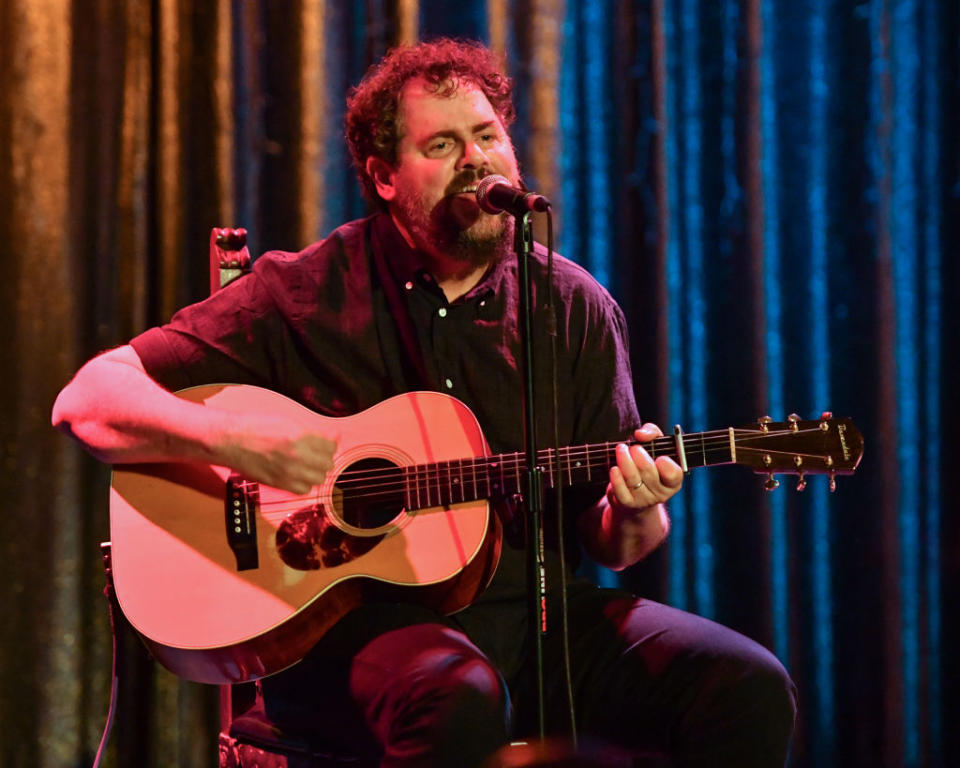Drive-By Truckers frontman Patterson Hood apologizes for 'stupidity' of group's name and 'any negative stereotypes it has propagated'
Patterson Hood, of the band Drive-By Truckers, has apologized for the moniker the band members selected when they got together in Athens, Ga., in 1996.
“Our name was a drunken joke that was never intended to be in rotation and reckoned with two-and-a-half decades later,” Hood wrote Wednesday in an op-ed for NPR. “I sincerely apologize for its stupidity and any negative stereotypes it has propagated. I’m not sure changing it now serves any higher purpose, but I’m certainly open to suggestions. In the meantime, you’re welcome to just call us Lady DBT.”
“Lady DBT” is a reference to the country and pop group formerly known as Lady Antebellum, which announced last week that it would be changing its name to simply Lady A. The members of that group said they realized the word antebellum, used to describe a period in the South that depended heavily on slavery, was no longer appropriate. Lady A had a problem, though, in that a blues artist was already using the name.

Hood said he had actually “snickered” through that debacle, but that’s what led him to the realization about his own Southern rock group’s name.
“A question smacked me right in the face: What kind of a*****e would name his band Drive-By Truckers?” Hood asked.
Hood grew up in Muscle Shoals, Ala., in the ’60s and ’70s, the son of David Hood, a musician in the famous Muscle Shoals Rhythm Section. He said his band’s name was meant to pay tribute to the very music that influenced him: punk rock, hip-hop, classic country music.
He said he grew up with “a far different view of our country’s history of racism” than his white classmates. “It also probably allowed me to pat myself on the back, and even think I was one of the good guys.”
He pointed to the precise moment everything changed for him.
“In 2014, I was awakened by the back-to-back killings of Eric Garner and Michael Brown and the ongoing rage over the killing of Trayvon Martin two years earlier. Remembering back to Edward Wright’s death, I was suddenly forced to face up to just how little we had progressed as a people in the past two decades,” Hood said. “Like so many white Americans, I had drunk the Kool-Aid following Obama’s election, thinking it somehow signified that we had entered a ‘post-racial’ state of being. My way of trying to figure it all out was to sit down and attempt to write a song about it.”
The song he mentioned was 2016’s “What It Means,” which he described as “a white man’s reckoning of the American nightmare so many of us had tried not to notice,” of “Black men and women being murdered on the streets by people of authority.”
While Hood left the question of an official name change for his band up in the air, he had clear opinions on whether both the movie Gone With the Wind and Confederate statues still have a place in the world.
He said “Good riddance!” to the 1939 film and so long to the monuments.
“A vast majority of them went up during the early days of the Civil Rights struggle to symbolize white superiority and to romanticize bygone days when it went unquestioned,” Hood said. “Tearing them down unequivocally says: Those days are over. It’s way overdue.”
Read more from Yahoo Entertainment:


